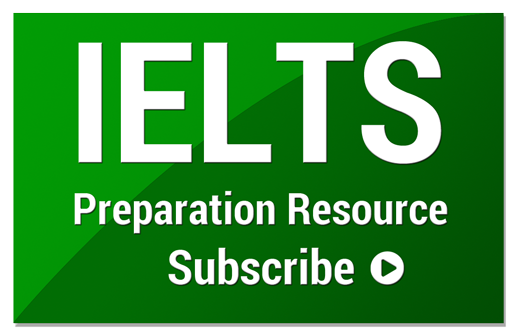LOGIN FORM
HELPFUL INFORMATION
What is IELTS?
IELTS stands for "International English Language Testing System". It's a system for testing
the language ability for people who need to study or work in an environment where English is
the language of communication. It is jointly managed by Cambridge English Language
Assessment, the British Council and IDP Education. It was established in 1989 and is one of
the two major English-language tests in the world (TOEFL being the other).
IELTS
is accepted by most British, Canadian, Australian, Irish, New Zealand and South African
academic institutions. Over 3,000 academic institutions in the United States and various
professional organisations across the world also accept IELTS. It is now a requirement for
people wishing to immigrate to Australia and New Zealand and is also accepted by immigration
authorities in Canada
Why are there two versions of IELTS (Academic IELTS and General Training IELTS)?
The IELTS Academic format is for people who want to study or train in an English-speaking
university or Institution of Higher and Further Education. Admission to undergraduate and
postgraduate courses is based on the results of the Academic test. IELTS Academic may also
be a requirement to join a professional organisation in an English-speaking
country.
The General Training format of the test is typically for school, work or
migration. The General Training format focuses on general survival skills in broad social
and workplace contexts. It is typically for those who are going to English-speaking
countries to do secondary education, work experience or training programs. People migrating
to Australia, Canada and New Zealand must sit the General Training test.
Every
organisation sets its own entry requirements. In some cases both versions of IELTS may be
accepted. For more information about who accepts IELTS and what version you will need to
sit, visit www.ielts.org and search 'Who accepts IELTS?'.
Which version of IELTS should I choose?
If you are not sure whether you should sit the Academic format or General Training format of
the IELTS test, there are a few basic guidelines to keep in mind.
Generally
speaking, select the IELTS Academic option if:
1. you will be training at
a university - undergraduate or postgraduate studies
2. you have been
advised to study Academic IELTS
You should select the IELTS General Training
format if:
1. you are immigrating to an English-speaking
country
2. you are going to an English-speaking country to complete
Secondary School training
3. you will be doing non-academic work
experience or training programs
4. you have been advised to study General
Training IELTS
What does it cost to sit the IELTS test and where do I go?
IELTS has more than 900 test centres and locations in more than 130 countries. You can search for your nearest test centre by country and territories, and city at the official IELTS website. Simply go to www.ielts.org, locate the 'Find an IELTS test' link and click on your country. Once you have found your country, you will be able to easily search for upcoming IELTS test locations, dates and costs.
What can I expect on the IELTS test day?
The IELTS test will take most of the day, so make sure you are mentally and physically ready.
You should arrive early to allow enough time for registration and to be seated for the test.
If you arrive late, you may not be allowed to sit the test. No personal items may be taken
into the test room. IELTS staff will collect and safely store your personal belongings.
Items which are forbidden in the test room include: dictionaries, notes, cameras, mobile
phones, hand-held computers, books and wallets.
When you arrive on test day, an
IELTS staff member will check your identification (ID). You are not permitted to speak to
any other candidates. On your desk, you are only allowed to have your identification,
pens/pencils, an eraser and a bottle of drink in a transparent bottle. If you have a problem
(for example, you may have been given the wrong paper or you cannot hear the instructions)
you should speak to a supervisor. IELTS staff will not help you with any of the
questions
You cannot leave your seat until your papers have been collected and
you have been told to leave. If you finish the test early you must wait quietly until the
test is finished and you are advised that you can leave. You must leave any notes and
materials on the desk. Make sure you collect your belongings. You will be able to see your
results 13 calendar days after the test. Your results are available online, you can collect
your certificate in person or have it posted to you.
How Effective Is Online Learning?
Online learning is here to stay and the benefits of preparing for IELTS online are
significant. A recent *survey involving several thousand university leaders in the USA
pointed out that the number of students studying online has increased dramatically over the
past decade. The same report shows that almost 70% of higher learning institutions see
online learning as critical to their success. In other words, a majority of universities
consider online learning as an important and major part of their university
courses.
Some students worry that online learning is not as good as face-to-face
learning, they feel that the best way to learn is in a physical classroom with a live
teacher. This concern is not supported in the research. The survey pointed out that over 80%
of academic leaders in universities consider online learning to be either 'better' or 'as
good as' face-to-face learning.
Taking advantage of the internet as a way to
learn is not only growing in popularity, it is also seen by educational leaders as an
excellent way to learn. As our testimonials show, Scott's English Success has proven
extremely effective in helping students to prepare online for their IELTS test and a number
of students have stated that it is more effective than their previous classroom experience.
What is an IELTS band score?
Your IELTS band score will be given to you as a number between 0 (Did not attempt the test)
and 9 (Expert User). A band score is not always expressed as a whole number but may be
something like 6.5 or 7.5. You will receive a band score in each of the 4 modules -
Listening, Reading, Writing and Speaking. Your four scores will be averaged to arrive at an
Overall Band Score. Your goal is to achieve as high an Overall Band Score as
possible.
There is not a pass or fail measure in the IELTS test, but you will
have a target band score that you are aiming to achieve. The band scores you will need to
achieve will depend on your purpose for sitting the IELTS, so be sure you check with your
educational institution of choice or your local immigration lawyer for your specific
requirements.
How long should I take to prepare for IELTS?
The answer to this question depends upon your level of English. If you are a native English speaker, you could possibly be well-prepared for the test within 1-2 weeks. If you are at an advanced level of English, 1 month may be sufficient. We recommend an intermediate-level student should set aside 2 months for steady preparation. Most students in our course choose the Premium learning mode as it gives 62 continuous days of online IELTS preparation.
'We hope you find these free IELTS resources useful, but for even more
support, lessons, videos and practice tests, become a full member today?
Did you
know that we provide free access to the complete online IELTS course FREE OF CHARGE to
all our clients? Sign up with us today and we'll pay your membership fees!'






Need more information ?
Kindly share us your contact details below for further assistance.



